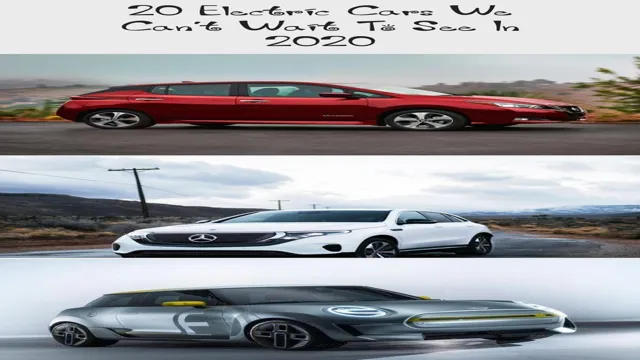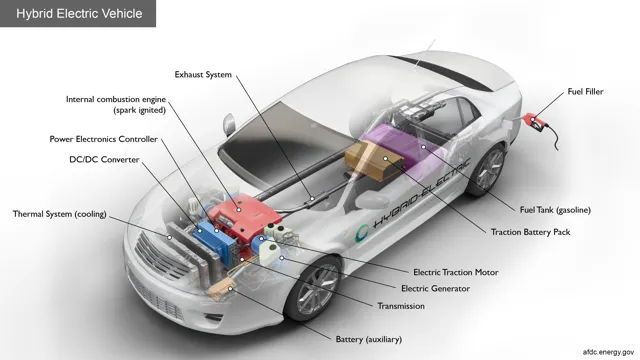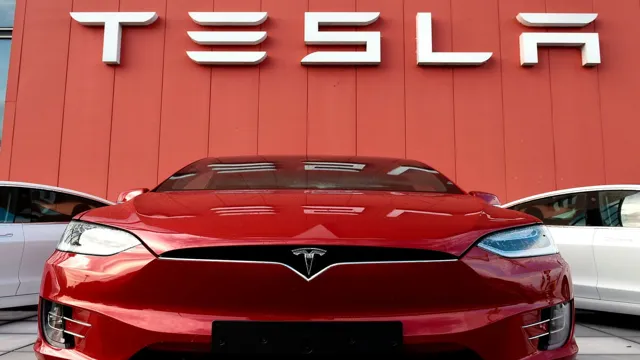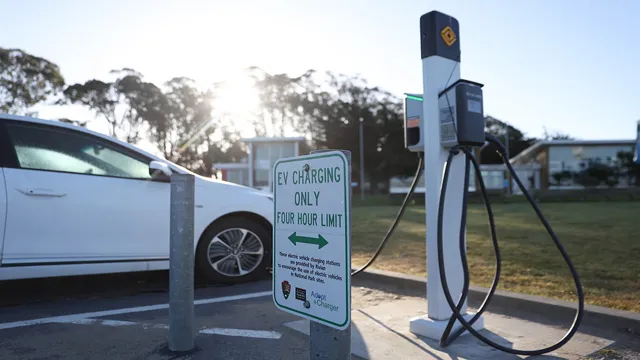A Look back in Time: Discovering the Fascinating History of Electric Cars!
Electric cars have become increasingly popular in recent years, offering a greener and more sustainable alternative to traditional gas-powered vehicles. But did you know that the history of electric cars dates back over 100 years? As early as the late 1800s, electric vehicles were being developed and tested on the streets of Europe and the United States. In fact, in the early 1900s, electric cars were even more popular than gasoline-powered vehicles, due to their quiet operation and ease of use.
Yet, over time, gasoline-powered cars became the norm, and electric vehicles fell out of favor. But with the rise of environmental consciousness in modern society, electric cars are once again gaining popularity and paving the way for a cleaner, more sustainable future.
Early Beginnings
Electric cars may seem like a new innovation, but the technology behind them has been around for over a century. The first electric car was invented in 1837 by Robert Davidson, a Scottish inventor. However, it was not until the late 1800s and early 1900s that electric cars began to gain popularity.
In fact, at the turn of the 20th century, electric cars were more common than gasoline-powered cars in many cities. This was due to their ease of use and lack of noise and pollution. However, with the discovery of abundant reserves of oil, gasoline-powered cars quickly became more popular and less expensive to produce.
It wasn’t until the 1970s oil crisis that electric cars began to make a comeback. Today, advances in technology have made electric cars more efficient and affordable than ever before, paving the way for a new era of sustainable transportation.
Late 1800s to Early 1900s Innovations
During the late 1800s and early 1900s, there were several incredible innovations and inventions that changed the course of human history. These advancements laid the groundwork for the modern world that we know today. One of the earliest innovations during this period was the advent of electricity.
Thomas Edison’s development of the electric light bulb in 1879 was a game-changer, and it helped usher in the era of electric power. This breakthrough also led to the creation of the electric motor, which was used to power countless machines and appliances. The telegraph, telephone, and radio were other key innovations of this time and allowed for easier communication over long distances.
Other notable inventions included the automobile, airplane, and motion picture camera. These innovations revolutionized transportation and entertainment, leading to faster travel and a new form of visual storytelling. Overall, the late 1800s to early 1900s were a period of tremendous progress and change, and the innovations created during this time continue to shape the world we live in today.
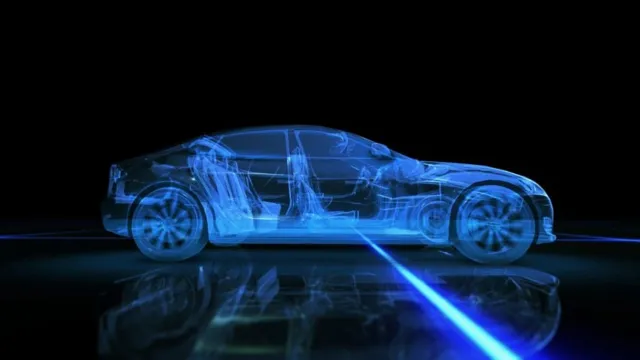
Rise of Gasoline Cars
The history of gasoline cars dates back to the late 1800s when Carl Benz invented the first gasoline-powered automobile. But it wasn’t until the early 1900s that this technology gained traction and became popular. Early gasoline cars were expensive and only affordable to the wealthy, but advancements in manufacturing and assembly line techniques made them more accessible to the masses.
The Ford Model T, produced in 1908, was a breakthrough as it was the first car that was produced using these new techniques, making it affordable for the average person. The rise of gasoline cars was also aided by the development of better quality, more reliable engines and fuel systems. This meant that people no longer had to rely on horses or steam engines to power their transportation, leading to the rise of gasoline cars as the dominant form of transportation.
Revival of Electric Cars
Looking at the history of electric cars, the technology for them actually started in the 19th century. However, these early versions were quite different from what we see on the roads today. It wasn’t until the late 20th century that electric cars began to receive more attention due to concerns about fossil fuels and environmental pollution.
In the mid-1990s, General Motors introduced the EV1, one of the first mass-produced electric cars, but it was later discontinued due to financial issues. In the early 2000s, Toyota released the Prius, a hybrid electric-gasoline car that became popular worldwide. Fast-forward to today, and we see a revival of electric cars as technological advancements have made them more efficient, reliable and affordable.
With more options now available, electric cars are becoming increasingly popular, and it seems that they are here to stay.
1990s Advancements in Technology
The 1990s was an era of technological advancements, and one area that saw significant development was the automotive industry. Electric cars, which were initially introduced in the late 19th century, made a comeback in the 1990s. With the increasing concerns about air pollution and global warming, electric cars were seen as a viable solution to reduce emissions from cars.
Manufacturers such as General Motors and Toyota produced an electric car that could run for about 100 miles on a single charge. However, the high cost and limited range of electric cars meant that they never gained mass appeal. Despite this, the revival of electric cars in the 1990s paved the way for future developments in electric car technology.
Today, electric cars have become increasingly popular due to their improved battery technology, longer ranges, and lower costs. The future of the automobile industry seems to be electric, and the 1990s played a significant role in laying the foundation for this transition to cleaner and greener cars.
Tesla’s Impact on the Market
Tesla’s impact on the market has led to a revival of electric cars. Before the rise of Tesla, electric cars were often seen as clunky, unattractive, and impractical. However, Tesla changed this narrative by creating sleek and stylish electric vehicles that prioritized performance and range.
Their success has inspired other car manufacturers to invest in electric technology and bring their own models to the market. This competition has only benefited the consumer, as more options for affordable and efficient electric cars are now available. Tesla’s commitment to sustainability has also spurred the development of more eco-friendly technologies in the automotive industry.
Overall, Tesla’s impact on the market has been transformative, paving the way for a cleaner and more sustainable future.
Growth of Electric Cars Globally
Electric cars have been on the rise globally, with numerous countries adopting policies that promote the use of these eco-friendly vehicles. This has led to a surge in manufacturing, with companies putting more resources into developing innovative electric cars. The revival of electric cars has been driven by several factors, including the need to reduce carbon emissions, rising fuel prices, and increased government incentives.
In recent years, major automakers have made significant strides in creating affordable electric vehicles that are efficient and have decent battery ranges. The growth of electric cars is poised to continue in the coming years, with projections showing that these vehicles will account for a significant portion of the global automotive market. With advancements in technology, the range anxiety associated with electric cars is becoming less of an issue, and charging stations are becoming more accessible.
The transformation of the automotive industry towards electric vehicles is happening, and it’s happening fast. As consumers become more conscious about their impact on the environment, it’s likely that electric cars will become even more popular.
Future of Electric Cars
The technology for electric cars began in the early 19th century with the invention of the first electric vehicle by Scottish inventor Robert Anderson. However, electric vehicles did not become popular until the late 19th century when Thomas Parker, a British inventor, electrified a horse-drawn carriage. Then in 1835, Thomas Davenport, an American blacksmith, patented the first electric car, which was powered by a small electric motor.
Fast-forward to the present time, and electric cars are gaining momentum as the future of the automobile industry. With advanced technology and environmental concerns, electric cars are becoming a more affordable and practical option for many people. The future of electric cars looks bright as more car manufacturers are investing in the development of electric cars, resulting in a wider range of options for consumers.
As consumers become more aware of the benefits of electric cars, such as their low maintenance and zero emissions, we can expect to see an increase in their popularity and adoption. The technology has come a long way since the beginning, and the future of electric cars is looking brighter than ever.
Further Technological Advancements
The future of electric cars is looking bright with a range of technological advancements on the horizon. One area of focus is the development of longer lasting batteries, which would allow for extended driving range and faster charging times. Another advancement is the incorporation of artificial intelligence, which can optimize energy use and increase efficiency.
Additionally, the use of solar panels and regenerative braking technology is being explored to further reduce dependence on traditional energy sources. As electric cars become more accessible and affordable, the demand for charging stations will also increase, creating a need for more infrastructure. Overall, the future of electric cars looks promising with a range of advancements that will continue to improve their performance, affordability, and environmental benefits.
Predictions for Electric Car Market Growth
The future of electric cars is looking bright, with analysts predicting significant growth in the market over the next few years. In fact, it is estimated that the electric car market will grow to over 31 million vehicles by 2030. This is due to a variety of factors, including increased government incentives and regulations, improved technology and infrastructure, and the desire for more sustainable transportation options.
Additionally, as more and more people become aware of the environmental impact of traditional gas-powered cars, they are gravitating towards electric vehicles as a more eco-friendly alternative. With this level of growth, the electric car market is poised to transform the automotive industry and pave the way towards a greener, more sustainable future.
Conclusion
In conclusion, the evolution of electric cars dates back as far as the early 19th century, with notable contributions from pioneers such as Thomas Davenport and Robert Anderson. However, it wasn’t until the recent surge in renewable energy and green initiatives that the technology truly began to gain traction. So, you could say that the age of electric cars has been in the making for centuries, but it’s only now that we’re plugging in and revving up for a greener future.
“
FAQs
What year was the first electric car invented?
The first electric car was invented in 1837 by a Scottish chemist named Robert Davidson.
When did the technology for mainstream electric cars begin?
The technology for mainstream electric cars began in the 1990s when automakers started making electric cars for mass production.
What is the range of an electric car on a single charge?
The range of an electric car on a single charge varies from model to model, but most electric cars today have a range of around 200-300 miles per charge.
How long does it take to charge an electric car?
The time it takes to charge an electric car depends on the charging speed and the size of the battery. On average, it takes around 4-8 hours to fully charge an electric car.
